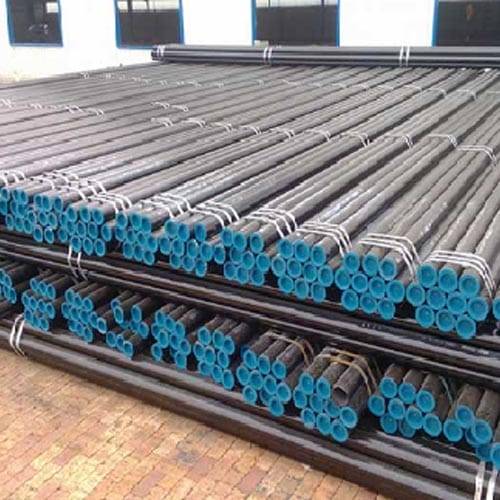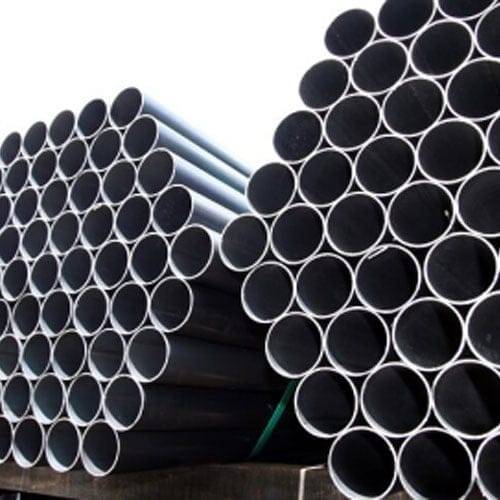Introduction

In modern industrial settings, mechanical tubing serves as a foundational component across a spectrum of applications, ranging from automotive manufacturing to structural engineering. This blog aims to comprehensively explore the characteristics, applications, and advantages of mechanical tube, shedding light on its indispensable role in various industries.
What is Mechanical Tubing?
Mechanical tubing encompasses a diverse array of hollow structural sections primarily crafted from metals such as steel. Unlike conventional structural tubing, which prioritizes load-bearing capacity, mechanical tube is engineered to withstand mechanical stresses and is valued for its dimensional precision, strength, and versatility. This distinction makes it a preferred choice in applications where durability and performance under stress are paramount.
Properties and Types of Mechanical Tubing
Mechanical tubing exhibits a distinctive set of properties that make it suitable for a wide range of industrial applications. These properties include high tensile strength, excellent machinability, and weldability, allowing for seamless integration into complex mechanical systems. It is available in several types:
- Cold Drawn Seamless (CDS): Produced by cold drawing a solid billet through a die, resulting in improved dimensional tolerances and surface finish. CDS tubing is favored in precision applications where smoothness and accuracy are critical.
- Electric Resistance Welded (ERW): Created by forming flat steel strips into a tubular shape and welding the edges together using electrical resistance. ERW tubing is economical and commonly used in structural and mechanical applications.
- Hot Finished Seamless (HFS): Manufactured by piercing a solid billet through hot extrusion or piercing, resulting in superior mechanical properties suitable for high-temperature and pressure environments.
Applications of Mechanical Tubing
The versatility of mechanical tubing enables its widespread use across diverse industries:
- Automotive Industry: In automotive applications, mechanical tube finds use in components such as chassis frames, steering columns, and exhaust systems. Its high strength-to-weight ratio contributes to improved vehicle performance and safety.
- Machinery and Equipment: Within machinery and equipment manufacturing, mechanical tubing serves as a crucial material for hydraulic cylinders, conveyor systems, and agricultural machinery. Its ability to withstand heavy loads and resist corrosion ensures longevity and reliability in demanding operational environments.
- Construction: In the construction sector, mechanical tube plays a pivotal role in structural frameworks, scaffolding, and architectural elements. Its dimensional stability and ease of fabrication facilitate efficient construction processes while ensuring structural integrity.
- Oil and Gas: Mechanical tubing is indispensable in the oil and gas industry for applications such as drill pipes, pipelines, and downhole tools. Its resilience to extreme temperatures and pressures makes it ideal for withstanding the rigors of extraction and transportation processes.
- Aerospace: Within aerospace engineering, mechanical tube contributes to the construction of aircraft structures, landing gear, and hydraulic systems. Its lightweight yet durable properties help optimize fuel efficiency and operational performance in aviation applications.
- Manufacturing: In general manufacturing contexts, mechanical tube serves as a versatile material for machine parts, tooling components, and precision instruments. Its machinability and uniformity ensure consistency and reliability in production processes.
Role of Mechanical Tubing in Various Industries
Mechanical tubing’s role extends across critical industrial sectors:
| Industry | Application of Mechanical Tubing |
|---|---|
| Automotive | Chassis components, steering columns, exhaust systems |
| Machinery | Hydraulic cylinders, conveyor systems, agricultural equipment |
| Construction | Scaffolding, structural frames, architectural elements |
| Oil and Gas | Drill pipes, pipelines, downhole tools |
| Aerospace | Aircraft structures, landing gear, hydraulic systems |
| Manufacturing | Machine parts, tooling, precision instruments |
Advantages of Mechanical Tubing

Mechanical tubing offers several advantages that contribute to its widespread adoption in industrial applications:
- Strength and Durability: Mechanical tube exhibits high tensile strength and durability, ensuring reliable performance under heavy loads and adverse conditions.
- Versatility: Available in various types and sizes, mechanical tubing caters to diverse application requirements, from precision engineering to heavy-duty industrial uses.
- Cost-Effectiveness: Compared to solid bars or more complex structural solutions, mechanical tube offers a cost-effective alternative without compromising on performance or quality.
- Ease of Fabrication: Mechanical tube is easily cut, welded, bent, and machined to precise specifications, facilitating streamlined manufacturing processes and assembly.
Conclusion
In conclusion, mechanical tubing stands as a cornerstone of modern industrial applications, offering unparalleled strength, versatility, and reliability across automotive, construction, aerospace, and manufacturing sectors. Understanding its unique properties, diverse types, and broad applications is essential for engineers, designers, and manufacturers aiming to optimize performance and efficiency in their respective fields.
FAQ
Q:What are the main types of mechanical tubing?
A:Mechanical tubing includes cold drawn seamless (CDS), electric resistance welded (ERW), and hot finished seamless (HFS) types, each catering to specific industrial requirements.
Q:Where is mechanical tube used?
A:Mechanical tube finds extensive application in automotive manufacturing, machinery production, construction projects, oil and gas operations, aerospace engineering, and general manufacturing industries.
Q:What are the advantages of using mechanical tubing?
A:Advantages include superior strength, durability, versatility, and cost-effectiveness compared to alternative materials, making it a preferred choice in demanding industrial environments.



